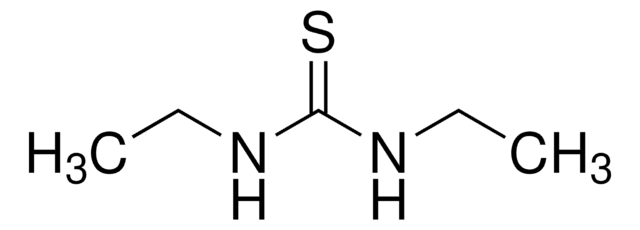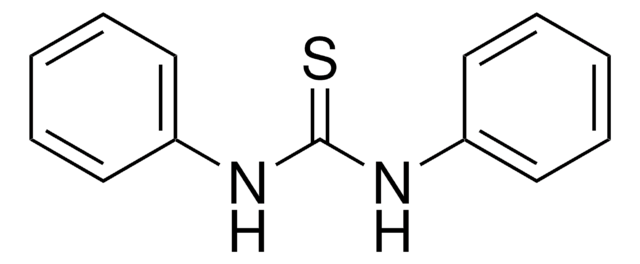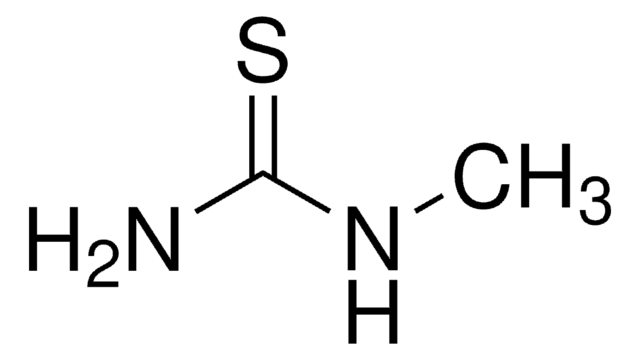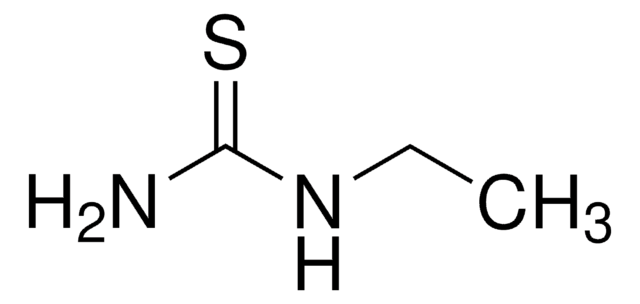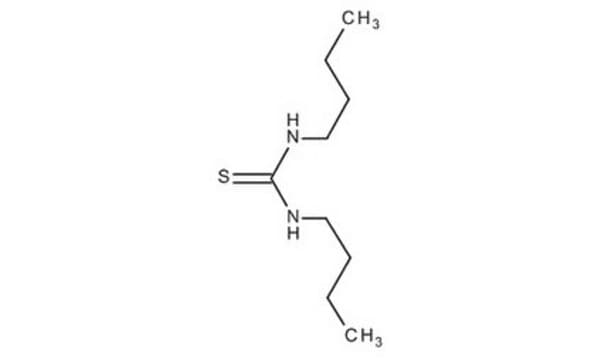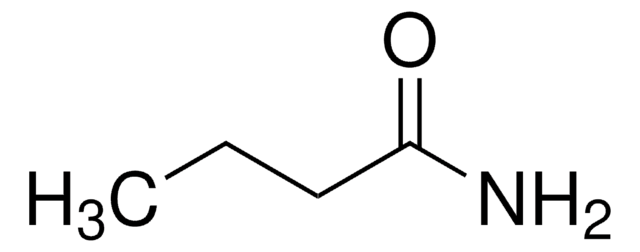All Photos(1)
About This Item
Linear Formula:
CH3(CH2)3NHCSNH(CH2)3CH3
CAS Number:
Molecular Weight:
188.33
Beilstein:
507434
EC Number:
MDL number:
UNSPSC Code:
12352100
PubChem Substance ID:
NACRES:
NA.22
Recommended Products
Quality Level
Assay
97%
form
powder
mp
63-65 °C (lit.)
SMILES string
CCCCNC(=S)NCCCC
InChI
1S/C9H20N2S/c1-3-5-7-10-9(12)11-8-6-4-2/h3-8H2,1-2H3,(H2,10,11,12)
InChI key
KFFQABQEJATQAT-UHFFFAOYSA-N
Gene Information
human ... EPHX2(2053)
mouse ... Ephx2(13850)
Looking for similar products? Visit Product Comparison Guide
Signal Word
Warning
Hazard Statements
Hazard Classifications
Acute Tox. 4 Oral
Storage Class Code
11 - Combustible Solids
WGK
WGK 3
Flash Point(F)
Not applicable
Flash Point(C)
Not applicable
Personal Protective Equipment
dust mask type N95 (US), Eyeshields, Gloves
Choose from one of the most recent versions:
Already Own This Product?
Find documentation for the products that you have recently purchased in the Document Library.
Customers Also Viewed
Contact dermatitis due to occupational dibutylthiourea exposure: a case of phonecard dermatitis.
P Schmid-Grendelmeier et al.
Contact dermatitis, 32(5), 308-309 (1995-05-01)
L Kanerva et al.
Contact dermatitis, 10(3), 158-162 (1984-03-01)
A 35-year-old machinist developed hand eczema from contact allergy to dibutylthiourea, a compound found in a paint and glue remover. Light and electron microscopy of his positive patch test was consistent with allergic contact dermatitis, showing Langerhans cell-mononuclear cell contacts
Occupational airborne allergic contact dermatitis from dibutylthiourea.
L Kanerva et al.
Contact dermatitis, 38(6), 347-348 (1998-08-01)
Erin M Warshaw et al.
Dermatitis : contact, atopic, occupational, drug, 19(4), 190-201 (2008-08-05)
Allergic contact dermatitis from thioureas is uncommon but may result from exposure to rubber, especially neoprene. To (1) describe the population with positive patch-test reactions to mixed dialkyl thioureas (MDTU) (ie, diethylthiourea and dibutylthiourea); (2) determine clinical and occupational relevance
Allergic contact dermatitis from dibutylthiourea in a wet suit.
Venkat S Gudi et al.
Dermatitis : contact, atopic, occupational, drug, 15(1), 55-56 (2004-12-03)
Our team of scientists has experience in all areas of research including Life Science, Material Science, Chemical Synthesis, Chromatography, Analytical and many others.
Contact Technical Service